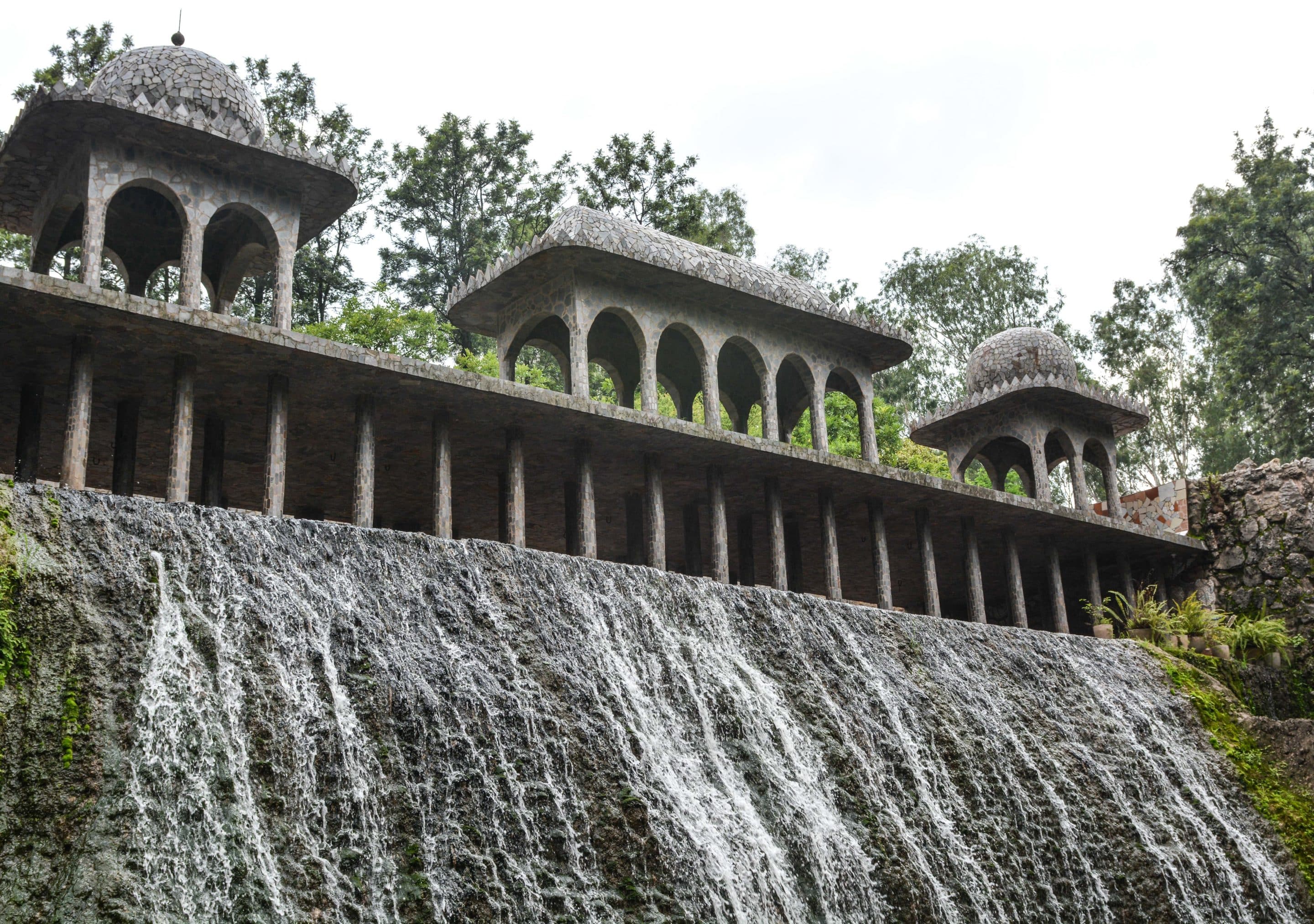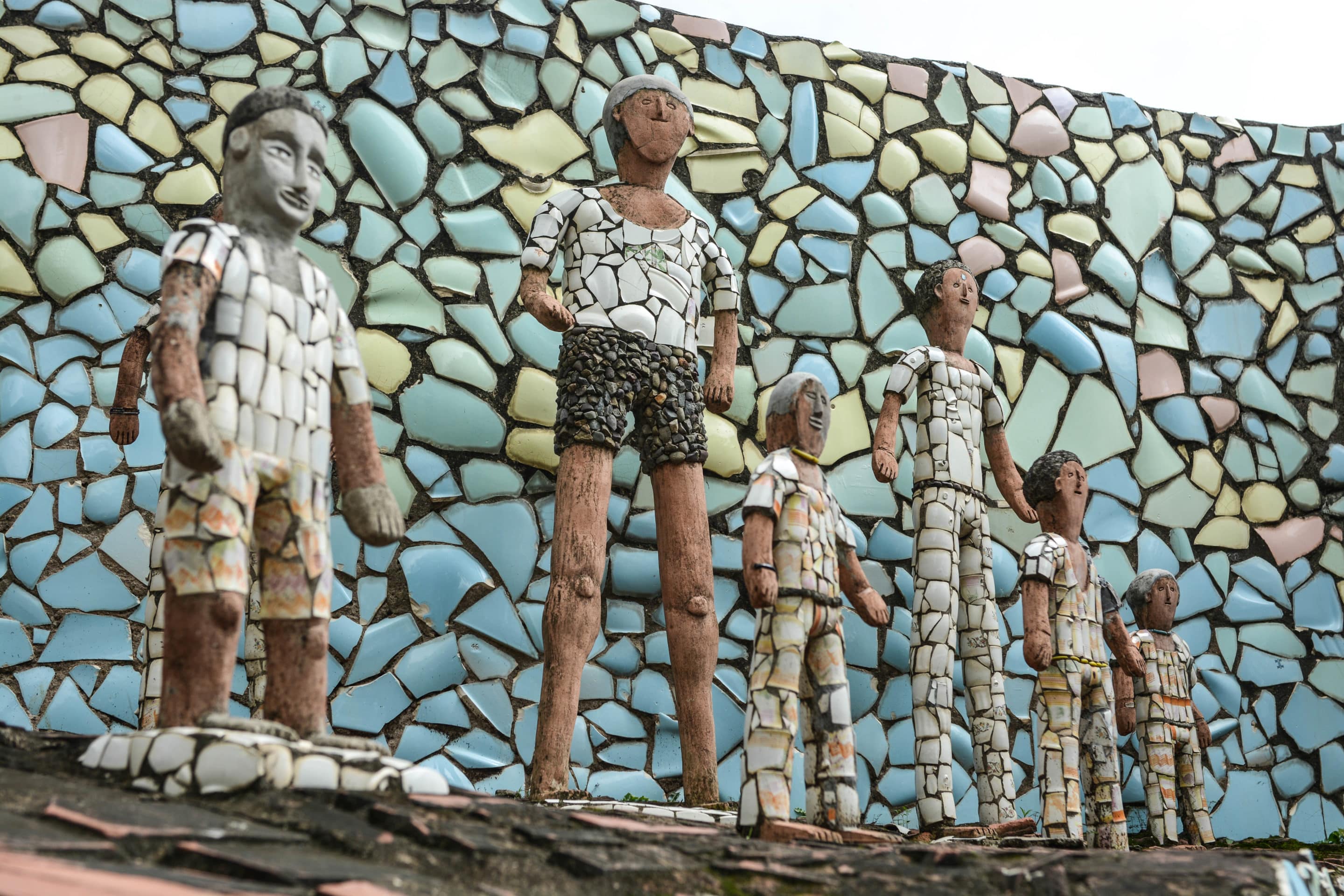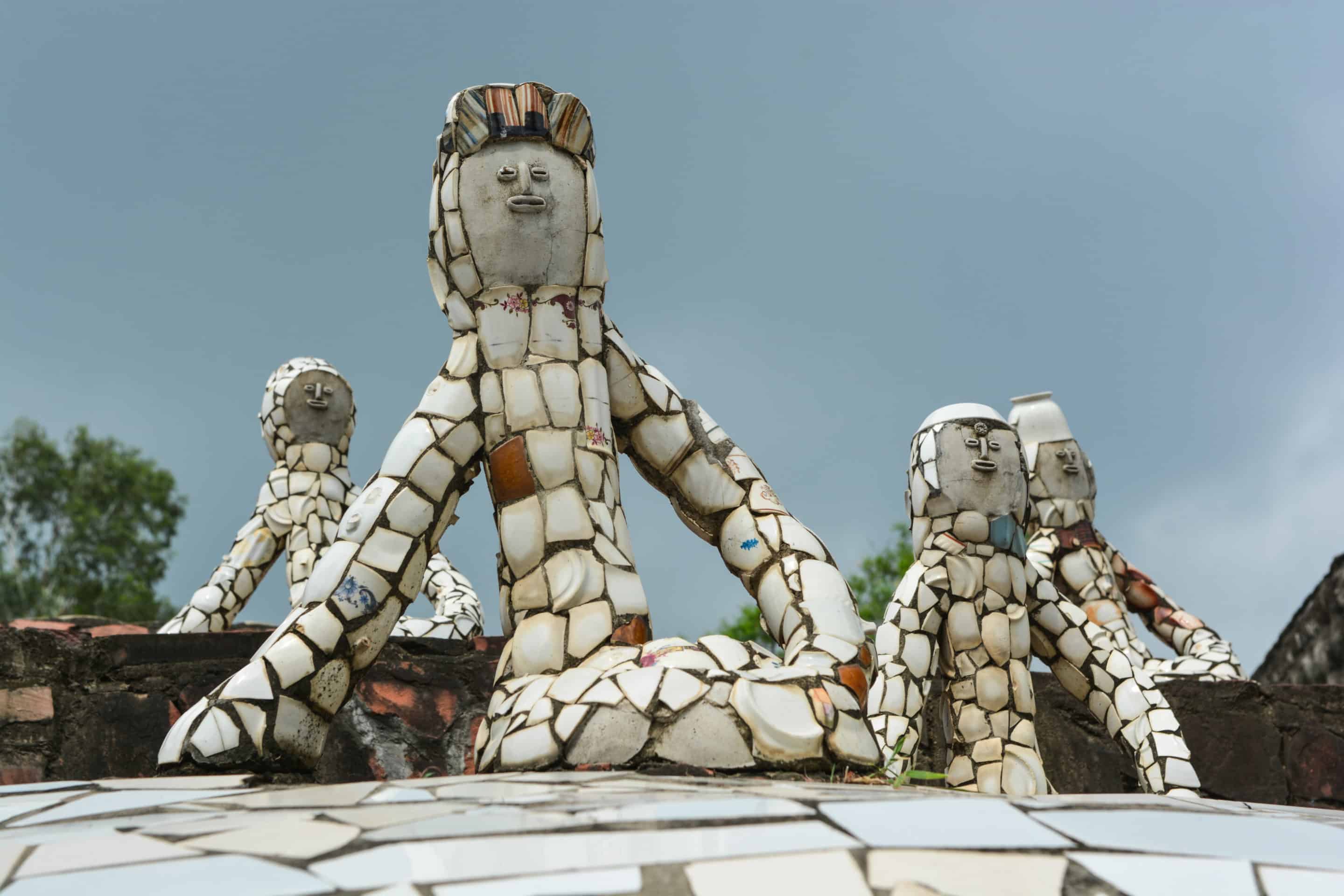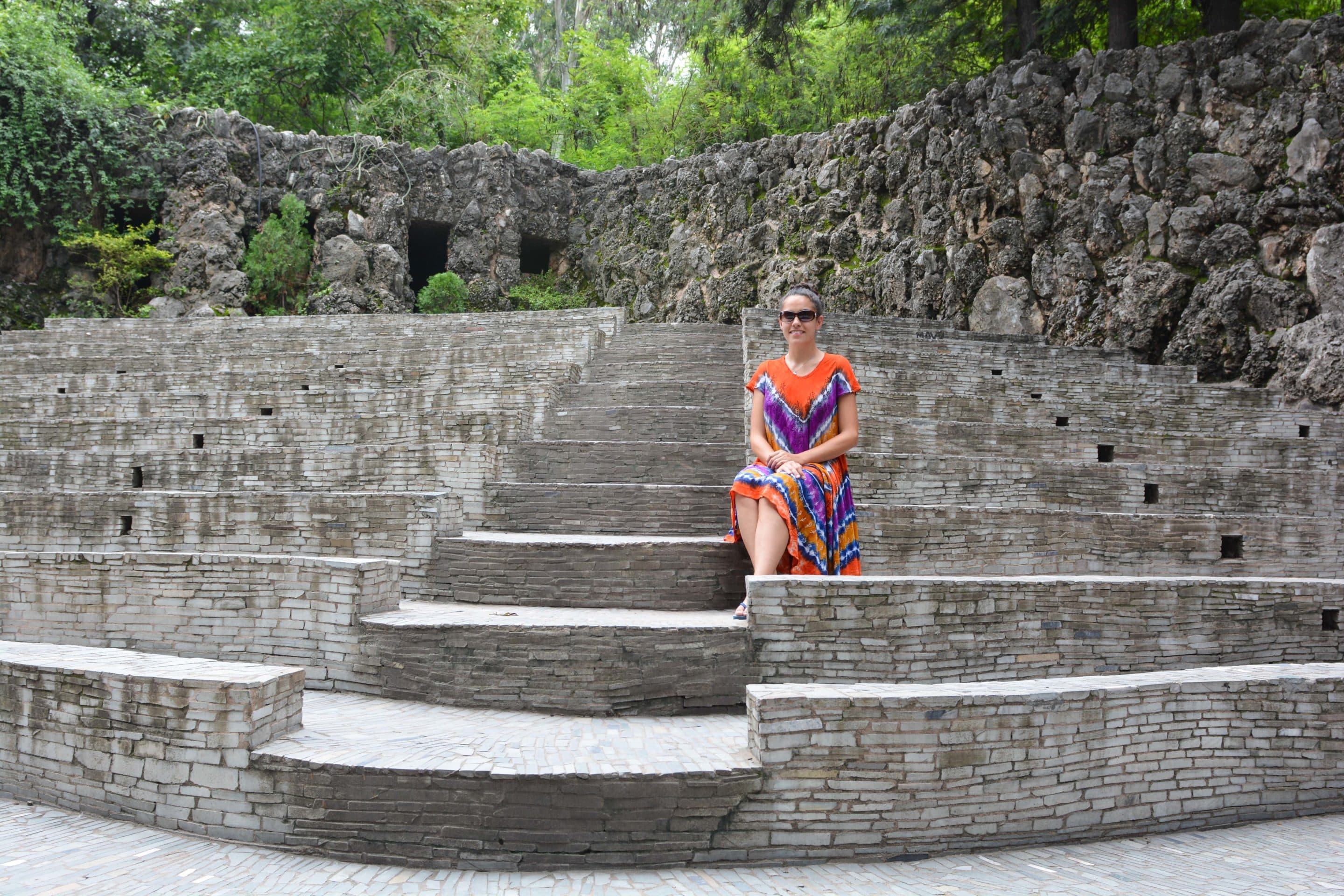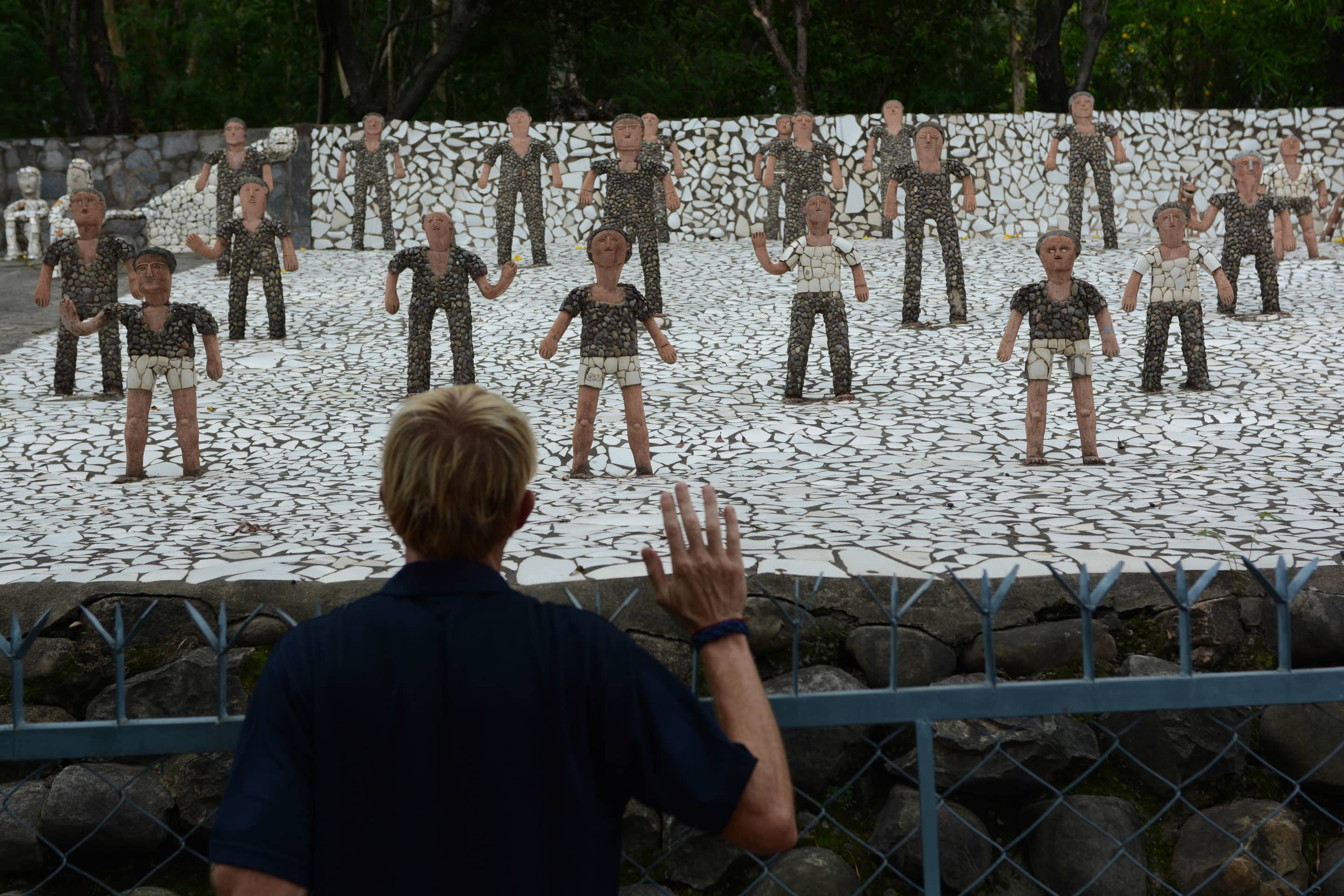If you’re a raving fan of Tim Burton and Gaudi, I’ve discovered your ultimate, wacky paradise in India. Yep, India. Tucked away in the lesser-known city of Chandigarh, is a “secret” junk art garden created by the eccentric genius, Nek Chand.
Chand joined the tidal wave of Pakistani refugees who crossed into India following the country’s independence in 1947. He was struck by the extreme amount of waste being generated, as villages were cleared to construct the developing town of Chandigarh. A road inspector by day and clandestine artist by night, Chand scoured the streets for neglected bits and bobs. He hauled them back to his jungle home and gave them new life as sculptural masterpieces.
Over time, Chand had amassed tens of thousands of surreal forms, all made out of urban and industrial debris. Moulded by his own two hands along with the gentle touch of nature, this curious collection included entire battalions of water bearers, pipers, chai drinkers, monkeys, cheeky stick men wearing tea-cup hats, and dancing women. The Burton-like characters, with their distorted limbs and hollow expressions, were all kinds of creepy yet strangely endearing, too.

Today, Chand’s backyard welcomes an average of 35,000 visitors each week. Once asked whether it was India’s most visited tourist attraction after the Taj Mahal, Chand humbly replied, “It is said”. The Junk Art Garden has also gained notoriety for being one of Asia’s most significant recycling programs (check out the Ned Chand Foundation).
Hopefully, this title lives on, as Chand recently passed away leaving behind an incredible legacy. Undoubtedly, his optimism, playful vision and flare for reinvention will continuePhoto of Nek Chand supplied by Huffington Post. All other photos were taken by meto captivate thousands of imaginations for many years to come. While Chand was visibly influenced by modernist masters such as Le Corbusier and Gaudi during his lifetime, his creative talent was transcendent – a gift from God.
Photo of Nek Chand supplied by Huffington Post. All other photos were taken by Ben & Sophee Southall

